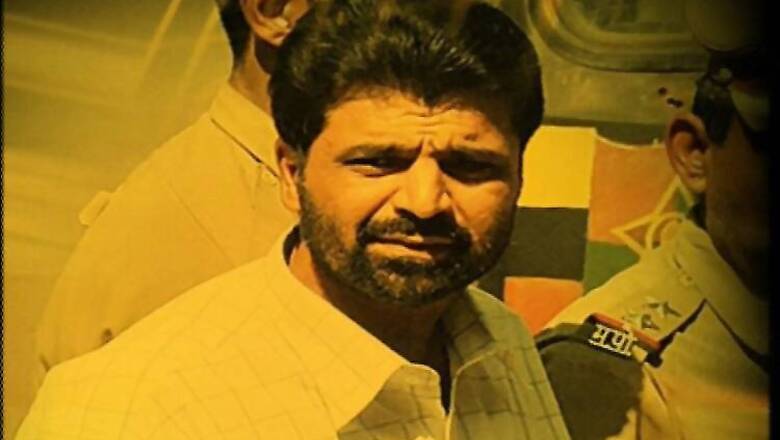
views
New Delhi: Yakub Abdul Razak Memon, the 1993 Mumbai serial bomb blasts convict, will be hanged on at 7 AM Thursday at the Nagpur Central Jail after his mercy petition was rejected by Maharashtra Governor Chennamaneni Vidyasagar Rao soon after a three-member bench of the Supreme Court threw out his plea seeking a reconsideration of his death sentence.
The apex court on Wednesday upheld the death warrant against Memon and said it is correct, and the dismissal of his curative petition by three senior most Supreme Court judges is in accordance with the law. The fate of the lone convict of the 1993 blasts is now hanging with President Pranab Mukherjee.
Meanwhile, the President is consulting the Home Ministry over Memon's mercy petition and his decision has to come in by 7 PM today. Sources said all procedures has to be cleared 12 hours before the hanging.
The Home Ministry is against Memon's plea and said he should be hanged at the earliest. The Home Ministry has sent the file back to the Rashtrapati Bhawan.
The President is likely to by the ministry's advice on Memon's plea, said sources.
Speaking on the case, senior lawyer Ujjwal Nikam said, "The SC has rejected all the contentions raised by Yakub Memon. The President will have to take the decision on the mercy petition today itself."
There is still ambiguity over what will happen if the decision on the mercy petitions is not taken by the President on Wednesday. According to the TADA court order, Yakub Memon is scheduled to be hanged on Thursday.
The bench headed by Justice Dipak Misra, before rising for lunch recess, had said that it will pronounce the order on Wednesday itself, if the counsel for the parties "cooperate".
ALSO READ: Yakub Memon: Chartered accountant to a ruthless terrorist
Senior advocate Raju Ramachandran, appearing for Memon, initiated arguments by referring to the separate, divergent orders passed by Justice AR Dave and Justice Kurian Joseph and said that the procedures established by the law have not been followed while deciding the curative petition of the convict.
Ramachandran said, "The judges, who were part of judicial process earlier, must be party to curative petition. It cannot be decided by judges who are strangers to the matters."
Memon, in his plea, had claimed he was suffering from schizophrenia since 1996 and has remained behind bars for nearly 20 years, much more than a person serving life term has to spend in jail.
He had sought commutation of death penalty, contending that a convict cannot be awarded life term and the death sentence for the same offence. The apex court had on June 2, 2014 stayed the execution of Memon and referred his plea to a Constitution Bench as to whether review petitions in death penalty cases be heard in an open court or in chambers.
The apex court had on April 9 2014 dismissed Memon's petition seeking review of his death sentence which was upheld on March 21, 2013.
Meanwhile, even as his hearing was underway in the apex court, he filed a fresh mercy petition to President Pranab Mukherjee.
The Chief Justice of India had constituted a larger bench of Justices Dipak Misra, Prafulla C Pant and Amitava Roy to decide the destiny of Memon after the two-judge bench of Justices AR Dave and Kurian Joseph was divided in its opinion on his plea.
While Justice Dave found no merit in Yakub's petition, Justice Kurian said the curative petition needs to be heard again as due process was not followed. Yakub had challenged the death warrant saying it was issued before his curative petition was heard by the SC.
Both Attorney General Mukul Rohatgi and other senior advocates, including Raju Ramachandran, appearing for Memon, were unanimous on the legal situation that needed to be addressed by larger bench with the indulgence of the CJI.
Justice Dave was of the view that there was no infirmity in the dismissal of curative petition of Memon on July 21 and it was open for the Maharashtra Governor to take a call on his mercy plea as the condemned prisoner has exhausted all available legal remedies.
Memon's review petition was heard by a three-judge bench in an open court in pursuance of the Constitution Bench verdict that the practice of deciding review pleas in chambers be done away with, in cases where death penalty has been awarded.
Twelve coordinated blasts had rocked Bombay, as the city was then known, on March 12, 1993, leaving 257 dead and over 700 injured.














Comments
0 comment